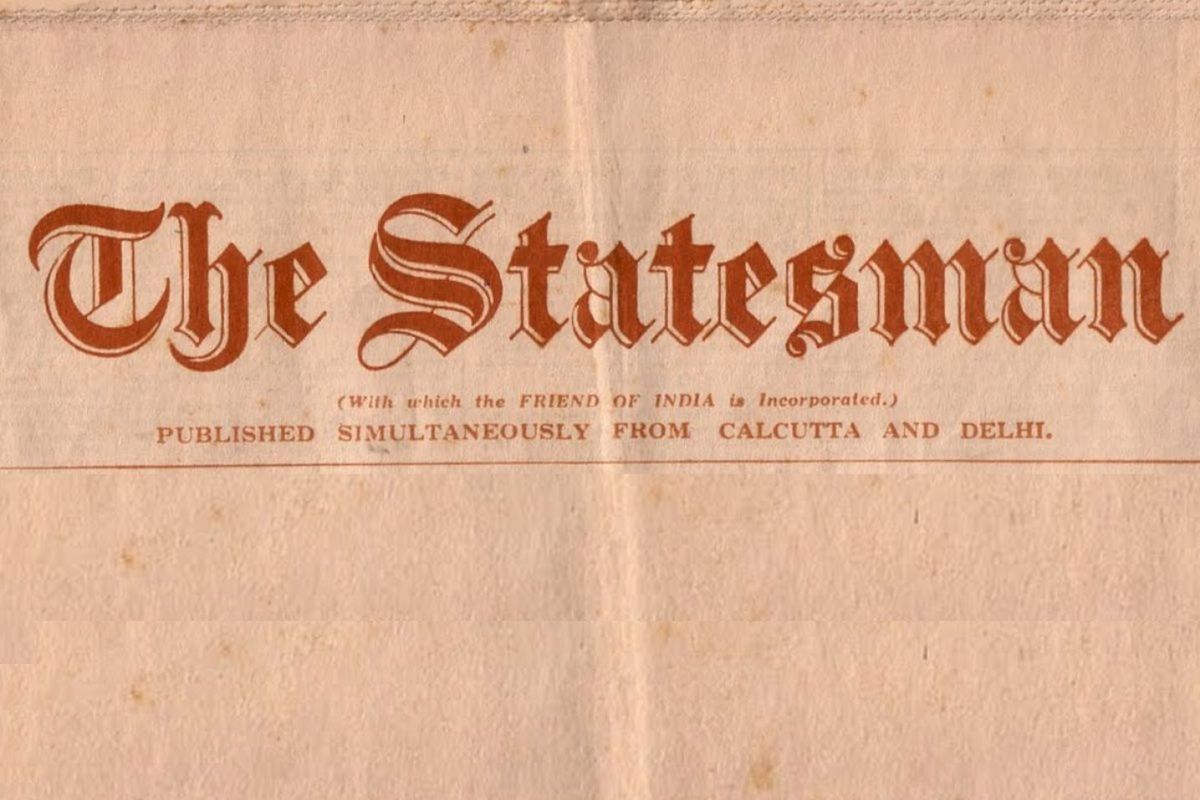A New Day, A New Dawn
There is a surprise for the readers. A special Poila Boishakh gift from none other than West Bengal chief minister Mamata Banerjee. Who has written a piece for this special edition.
On this day a century ago, these were some of the news items The Statesman readers got to read about India and the world.

OCCASIONAL NOTE
Most people only know of Digboi, in Assam, as a kind of Eastern Indian Batum, where there are fortunes to be made in oil, coal and other things. From the proceedings which we publish elsewhere, however, it would appear that it is also one of those industrial communities, more numerous in India, perhaps, than is generally realised, in which the happiest relations have long subsisted between the European management and the Indian staff. Making due allowance for the penchant of many clerical establishments for airing their English at a valedictory function, there is no mistaking the ring of sincere affection in the farewell address presented to the Hon. Mr. A.B. Hawkins, the retiring Agent and General Manager of the Assam Oil Co., on the 1st February, by the Indian community of Digboi. It is little wonder that Mr. Hawkins found it difficult to offer a suitable reply, but it becomes all the easier to understand the confidence with which he looks forward to the future of Assam under the reforms. “I feel very sure,” says Mr. Hawkins, “that, whatever may happen in other provinces, the scheme as applied to Assam, will benefit the governance of the province.” On a less genial occasion, this remark might have been suspected of subacidity; but it is fairly certain that it was uttered ex animo, and in any case Sir Nicholas Beatson-Bell is the last governor to take offence.
RESERVED RAILWAY CARRIAGES
Advertisement
ALLAHABAD, FEB 7
The Allahabad High Court has decided an important point of Railway law on an appeal by one Brijbassi Lal who was convicted under section 109 of the Railway Act and sentenced to pay a fine of Rs 10. The applicant, it appeared, willfully entered a third class compartment reserved by the railway authorities for Europeans and Anglo-Indians. The passengers in the compartment protested and referred the matter to the Assistant Stationmaster who directed accused to get down. He refused to do so and was finally removed with the aid of the police. Applicants’ defence was that he was within his rights and that the Act did not empower the railway authorities to reserve a compartment for a particular class of passengers. Their Lordships found that the conviction was valid in law.
LAHORE ASSAULT CASE
LAHORE, FEB 7
The Lahore High Court assault case was concluded today before Mr. Keogh, Additional District Magistrate. Mr. K.J. Rustomji, barrister, the complainant, was not represented by Counsel. The last witness, Mr. Jagannath, vakil, said he did not see anybody throwing coals. The complainant requested the Court to allow him to enter the witness box and give a statement. The Magistrate declined, saying his statement had already been recorded, and dismissed the complaint. In passing orders the Magistrate said, I am convinced that pieces of coal were thrown at the complainant, but it is impossible on the evidence adduced by the complainant in support of his complainant to say which of the accused persons threw them. I dismiss the complaint under Section 203 I.P.C.
CALCUTTA MINT & THE HOUSING QUESTION
DELHI, FEB 7
At the meeting of the Imperial Legislative Council, Mr. Crum moved the following resolution:- That this Council recommends to the Governor-General in Council that the question of removing the Calcutta Mint to another site be taken into consideration. The resolution was accepted with the reservation that its acceptance in no way committed the Government of India to agreeing to the Mint’s final removal if they were not provided with an equally suitable site for all purposes, or if on inquiry it was considered that there were other obvious weighty objections which prevented the proposal being proceeded with. The committee has been requested to report on the following points:- Advisability of removing the Calcutta Mint from its present site; if such removal is considered desirable, the site to which it should be removed the efficiency of the Mint.
TWO GIRL STOWAWAYS
Two smartly-dressed girls, Mollie Wilson and Mary Muir, belonging to Newcastle, were charged at Newport with secreting themselves on board the Norwegian ship Nenu, and obtaining a passage to Le Treport without the consent of the captain. The girls stated that they went on board the ship on New Year’s Eve to shelter from the rain, and decided to stay the night. When they awoke they found themselves at sea. It was added that the crew had offered to pay their fares back to Newcastle. The captain said he knew nothing of the girls’ presence until they reached Le Treport. The magistrate expressed his disgust at such a state of affairs, and said the captain should have provided them with proper shelter. The girls were discharged, and the offer to pay their fares was accepted.
Advertisement